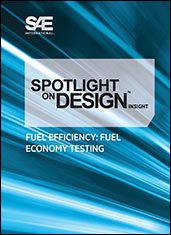Training / Education
Intelligent Vehicles From Functional Framework to Vehicle Architecture
This course provides an overview of state-of-the-art intelligent vehicles, presents a systematic framework for intelligent technologies and vehicle-level architecture, and introduces testing methodologies to evaluate individual and integrated intelligent functions. Considering the increasing demand for vehicle intelligence, it is critical to gain an understanding of the growing variety of intelligent vehicle technologies and how they must function together effectively as a system.







